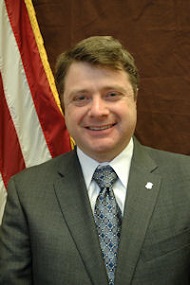QUESTIONABLE VALUE OF MOC CERTIFICATIONS

By Senator James C. Sheehan
There are few professionals whose dedication and knowledge can match that of our physicians. Doctors should be respected and supported for that professionalism, especially since we literally put our lives in their hands.
In order to do that, I have submitted legislation (2019-S 0301) on behalf of rank-and-file doctors to protect that professionalism from the requirements of unproven and involuntary credentialing beyond required yearly professional development.
Maintenance of certification (MOC) is the trademark name for a continuing professional credentialing program maintained by the American Board of Medical Specialties, which singularly dominates the specialty credentialing market place. The program provides an additional distinction or credential within one’s medical specialty. It is largely made-up of computer modules, assessments of knowledge and skills with formal testing.
The legislation I have introduced would authorize and reaffirm a hospital’s medical staff to freely choose whether or not to participate in an MOC program or any other similar credentialing program.
Medical staff already are permitted to make this choice; however, this legislation seeks to codify this bylaw practice into law so that the choice to participate in the MOC program will remain truly a voluntarychoice based a majority vote of the medical staff. It would also prohibit health care insurers from denying or reducing reimbursement rates to a physician or hospital based upon this decision.
The bill is compromise language based on model legislation drafted by the American Medical Association.
It must be clearly stated: this bill in no way limits the use of initial board certification for credentialing, nor is it in any way a statement advocating less learning by physicians or reduced quality of care.
Indeed, physicians already undergo rigorous training in medical school; followed by demanding residency programs. Then, they are fully licensed by the state to practice medicine. Thereafter, physicians are required to complete at least 20 hours of continuing medical education (CMEs) on average per year to stay current with the latest medical developments.
While the MOC is lauded by its proponents, there is no independent study or credible evidence that has shown that MOC improves clinical competency of providers or improves patient outcomes. Also, the program costs physicians thousands of dollars, requires significant time away from practicing medicine and caring for patients, and may contribute to physician burnout.
This bill will ensure the MOC will remain voluntary by giving physicians an unquestionable choice to elect to participate in the program, or no program, or perhaps a similar credentialing program. If this bill were to pass into law, Rhode Island would join 13 other states that have prevented, in some fashion, forcing doctors to participate in MOC programs.
This legislation would empower doctors to decide if and what credentialing program they wish their staff colleagues to participate in. In addition, the bill would put a stop to the growing national practice of insurers requiring MOC as a basis for credentialing, until more studies are done to weigh its impact on clinical and patient outcomes against the high costs required by MOC.
Doctors take care of us when we are in need. It’s time for us to take care of them by giving physicians an unquestionable choice, while rejecting the special, moneyed interests of those who would deny doctors a truly free choice.
The author, James C. Sheehan, is a state senator, representing District 36, which includes North Kingstown and Narragansett. He resides in North Kingstown.
